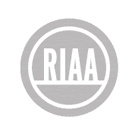 According to a new report, the content industry is ramping up its efforts to control piracy on college campuses and the RIAA is at the head of the effort.
According to a new report, the content industry is ramping up its efforts to control piracy on college campuses and the RIAA is at the head of the effort.
Earlier this month, a few notable universities reported that they had received a 10-fold increase in DMCA copyright notices. RIAA president Cary Sherman noted that this was true, citing a “phenomenal jump” in Media Sentry’s "computing efficiency".
“It’s the same procedures, the same standards, the same list of copyrighted works that we’re using,” said Sherman. “The Internet is a huge place, and there are millions of people connected to it … The amount of resources you put into sending out requests for specific files makes a difference; the more requests you make, the more you’re going to find.”
“We don’t think there’s any more infringement going on,” Sherman added. “We just think there’s more detection of infringement.”
This increase in "computing efficiency" is thanks to new automated scripts. Media Sentry searches for the songs on the RIAA's list using the script which then jots down "each entry’s IP address and confirms the authenticity of the file in question." The script will then move onto those users shared folders searching for more infringing music.
It is also apparent that Media Sentry investigators “do not usually download suspect music files, instead, they will try to hash the file remotely; if a hash comparison fails, investigators will download the file and attempt to verify its contents using Audible Magic, a program that specializes in recognizing an audio file’s sonic characteristics. Investigator will only hear a file in only two cases: if the fails both the preceding checks, or if he or she is gathering evidence for litigation."











